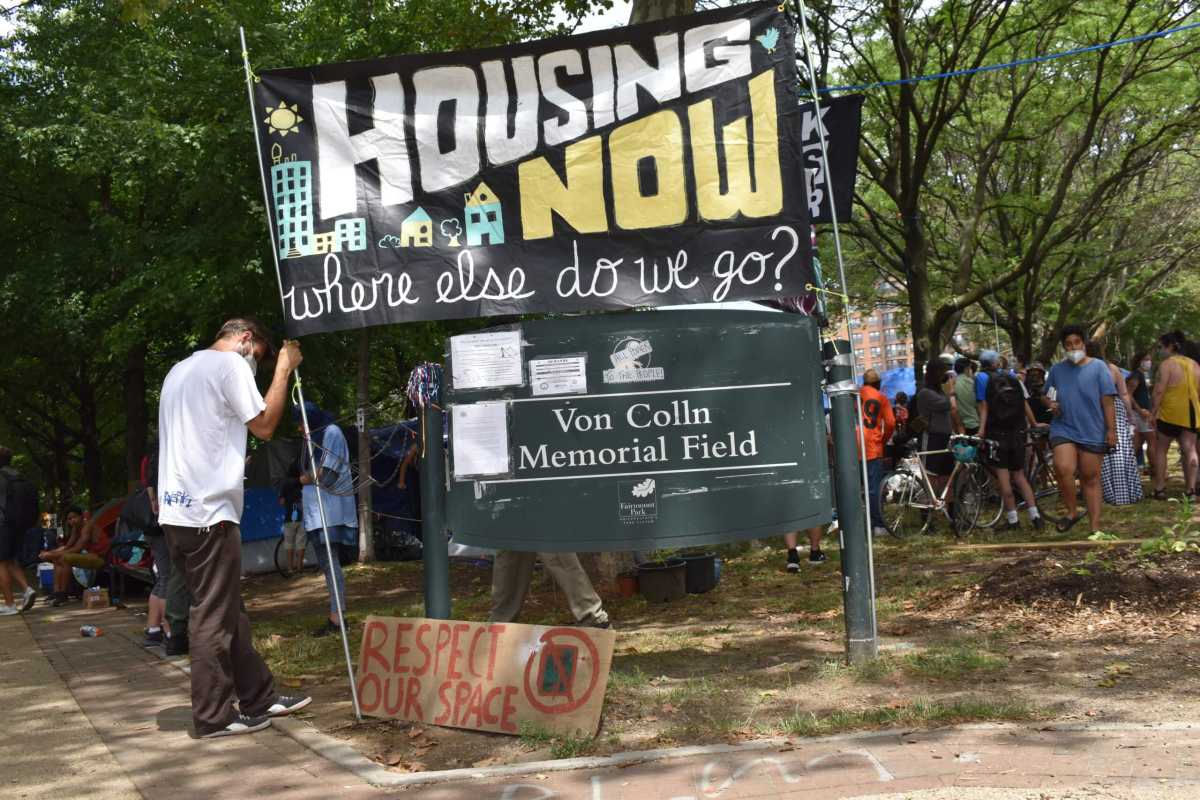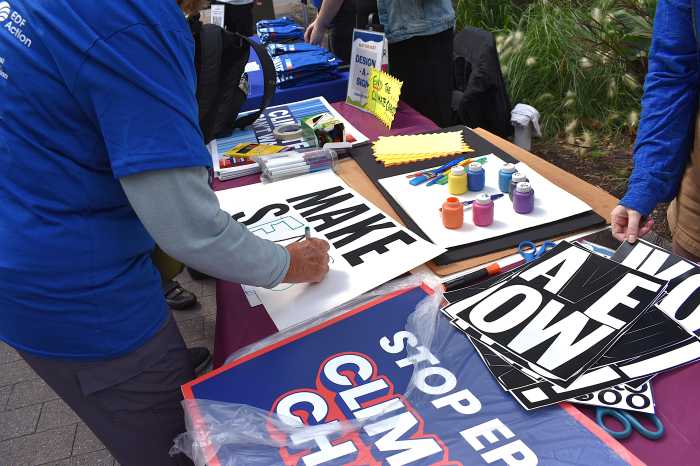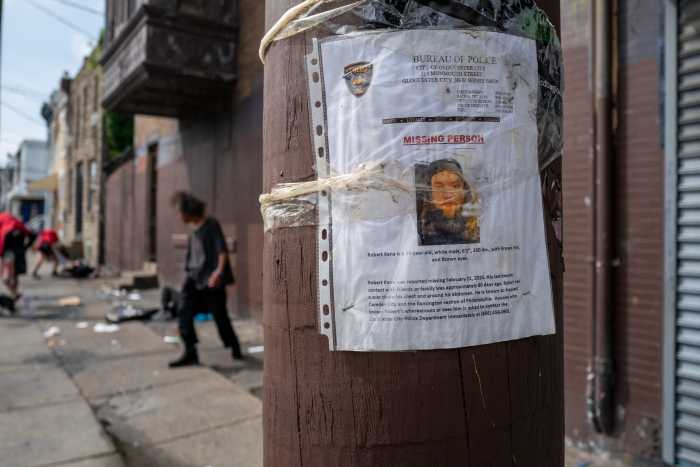Organizers of a pair of controversial protest encampments indicated that a deal has been reached to move homeless residents into vacant city-owned properties, but Mayor Jim Kenney’s administration said nothing has been finalized.
The disconnect seems to reflect the fractured nature of the negotiations between the city and the group of housing activists who helped set up the camps on the Benjamin Franklin Parkway and on Ridge Avenue near the Philadelphia Housing Authority’s headquarters.
Philadelphia Housing Action, the coalition of organizations that established the encampments, announced late Saturday night that it was “claiming victory” and that 50 vacant properties would be set aside for those living in the tents.
The homes would be transferred to a community land trust and be used as extremely low income housing, for families making under $25,000 a year. Camp organizers have been seeking such an arrangement for months.
“It’s a good start but it’s also not enough,” said Sterling Johnson, of the Black and Brown Workers Cooperative, which is part of the coalition. “This is only the beginning.”
Mike Dunn, a spokesman for the Kenney administration, said talks have not concluded, and he did not confirm the terms of a possible agreement.
“The city remains in negotiation with the representatives of the protest camps, but many details remain to be worked out,” Dunn said. “Any agreement will require a date certain by which the protest camps will be resolved.”
Philadelphia Housing Action, in its announcement, said the camps — at 22nd Street and the Parkway and 21st Street and Ridge Avenue — would remain until the people living there moved into the properties or “are supported in finding other appropriate housing solutions.”
Jennifer Bennetch, one of the organizers of the encampments, said she’s “pretty confident” a deal can be reached this week.
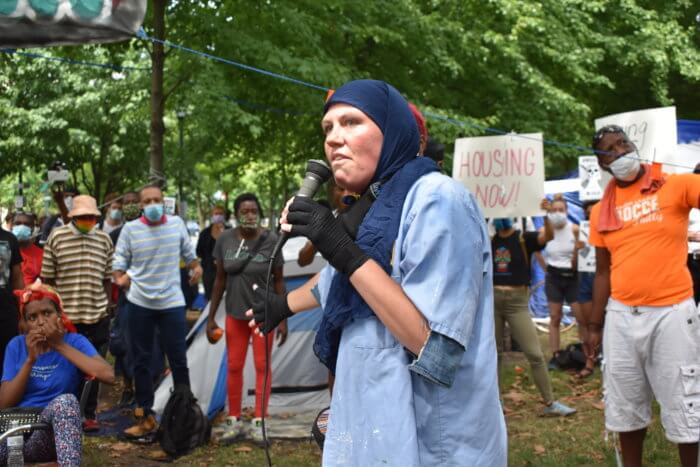
“We’re supposed to be talking tomorrow about which houses will be available and seeing how much work they need and coming up with a timeline for moving people out of the encampment into homes,” she told Metro Sunday.
Selecting the properties could prove to be a stumbling block. Bennetch said PHA is trying to push vacant homes with structural issues onto the coalition’s community land trust.
A PHA spokesperson did not respond to a request for comment Sunday.
Bennetch said she is working to identify houses in good shape that are eligible for transfer, meaning the housing authority is planning to offload them anyway.
Over the past several weeks, the encampments have thinned out, and there are about 100 people living at the two sites now, according to Bennetch.
Outreach workers have helped house 156 people from the camps, mostly in shelters and other temporary arrangements, according to the Kenney administration.
Bennetch said 50 properties should be enough to clear the camps, with some residents living in small groups together.
The land trust, she said, would charge rent, but it would be based on income. Someone without a job or benefits could live rent-free while advocates work to help them access opportunities.
Any rent that does come in would be invested in rehabilitating and maintaining the properties, Bennetch said.
In addition, the trust would be able to provide housing for people who have difficulty getting approved for other units due to a criminal record or eviction history, according to Philadelphia Housing Action.
Bennetch and her group, Occupy PHA, which pushes for reforms at the housing authority, have helped 15 families move into vacant PHA properties.
Activists said the city and PHA have agreed to allow the squatters either to remain where they are or to move into one of the units that will be transferred to the land trust.
If an agreement is reached to dissolve the camps, it would mark the end of a months-long struggle that, at times, has been tense.
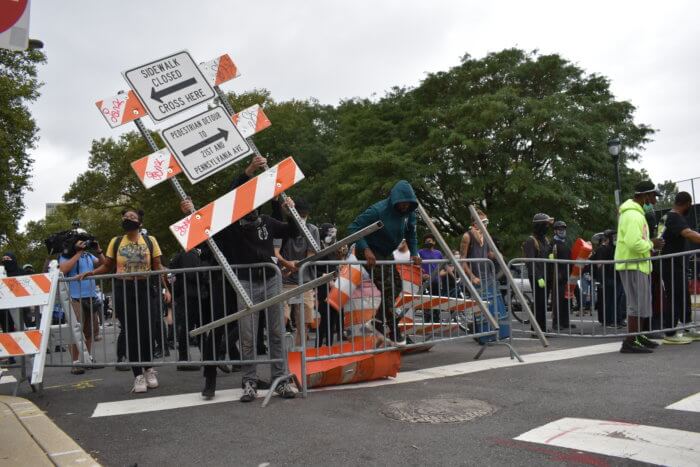
On Sept. 9, supporters showed up, some with makeshift shields, to defend the camps after the Kenney administration announced its intent to clear the sites.
It was the third deadline set by the city for residents to vacate the camps. Earlier attempts were put off — one time due to legal proceedings and the other after Kenney offered to personally intervene in negotiations.
Kenney has said using force to remove the tents would be a “last resort,” but he has also repeatedly decried conditions inside the camps and said they are not a long-term solution.
The encampments were established in June as a protest for affordable housing and racial justice in the wake of massive demonstrations following the death of George Floyd at the hands of Minneapolis police.




